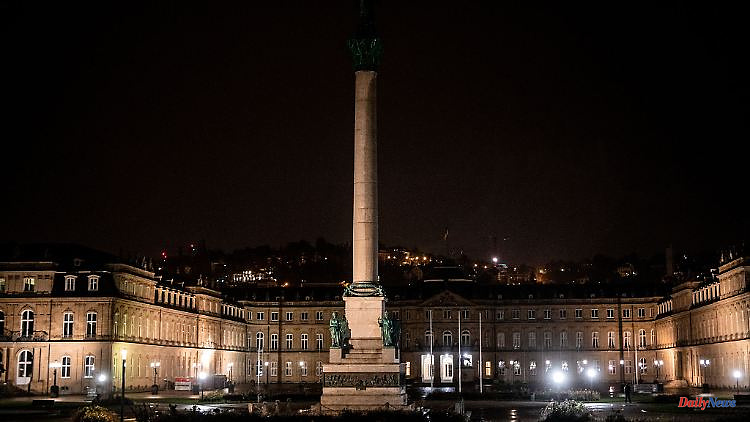Nationwide rules for saving energy have been in force for five months. In large cities in the south-west it has become darker and cooler in many places - at least that's what the administrations say. But they can only check themselves.
Stuttgart (dpa / lsw) - Large cities in the southwest have reduced their energy consumption, in some cases significantly, since the federal government's energy saving regulations came into force. In Karlsruhe, the municipal utilities reported around 20 percent less gas consumption for the months of October to December 2022 than in the same period last year, as the city announced. Those responsible for the city administration expect savings of over 20 percent in electricity and heat by the end of March.
The city of Stuttgart expects savings in the single-digit percentage range for its municipal buildings. In Mannheim, it was said that there was great potential, especially in the heat sector - with gas heating, consumption had fallen by more than 20 percent compared to the previous year. Final balance sheets are only available to the cities at the end of the heating period in spring. Freiburg, for example, also referred to this.
Due to concerns about bottlenecks, an energy saving regulation has been in force nationwide since September 1 of last year. In it, the maximum room temperature in public workplaces was lowered to 19 degrees. Corridors and other areas where people are not permanently present may no longer be heated. Hot water, which is only used for washing hands, should be switched off or the temperature reduced to a hygienic minimum. In addition, buildings, monuments and advertising spaces may no longer be illuminated at certain times and private swimming pools may not be heated.
As a result, it became noticeably darker in the large cities in the south-west from the point of view of the administrations. Many sights are no longer illuminated and the lighting has been reduced for the Christmas markets, for example. It also got noticeably cooler in public buildings and swimming pools.
However, there are no controls at companies or dealers, the cities said. This was not provided for in the federal ordinance, which was recently extended until mid-April, they said in unison. Violations were therefore not punished, and only a few tips from the public were received. "We appeal to intrinsic motivation, since the energy savings also have a direct effect on operating costs," said Freiburg. This intrinsic and economic incentive seems to be sufficient so far.












